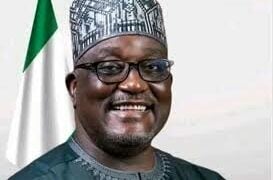The European Union (EU) has reaffirmed its commitment to credible, peaceful, and inclusive electoral processes in Nigeria as it deploys 687 observers to support Saturday’s Anambra governorship election under the EU Support to Democratic Governance in Nigeria (EU-SDGN) programme.
Through this programme, the EU is enabling its civil society partners to deploy election observers, strengthen peacebuilding, advance disability and gender inclusion, counter misinformation, and reinforce public confidence in the democratic process.
Seven of the 16 EU-SDGN implementing partners, the Kukah Centre, Yiaga Africa, International Press Centre (IPC), Centre for Media and Society (CEMESO), Nigeria Women Trust Fund (NWTF), ElectHER, and TAF Africa, are already on the ground in Anambra State, the EU said.
They are operating from a Unified Election Observation Hub designed to ensure coherence, message alignment, and shared visibility throughout the poll.
A statement by Laolu Olawumi, Programme Manager for Democracy, Rule of Law and Gender at the Delegation of the European Union to the Federal Republic of Nigeria and ECOWAS, said the key feature of this unified deployment is to obtain a broad view of the election by utilising the diverse skills and experience of the EU-SDGN partners, analyse the findings, and compile them into a comprehensive report that will be made public and available to all stakeholders.
In total, the programme is deploying 687 observers across Anambra State, working in coordinated clusters that cover election integrity, disability inclusion, gender participation, peacebuilding, media and misinformation tracking, logistics observation, and real-time data reporting.
“This is one of the most extensive civil society-led observer deployments ever recorded for a state election in Nigeria. Each cluster is collecting evidence from a different angle.
“When those findings are merged, they offer a fuller, verifiable picture of the election that no single organisation could produce alone.”
The observers, the statement said are distributed across several thematic areas, including election integrity and results verification; disability inclusion with trained observers and sign language interpreters.
Others are; gender participation with observers tracking women-related issues; media and misinformation tracking through journalists and fact-checkers deployed across polling locations; peacebuilding and conflict prevention; and the monitoring of polling logistics and the distribution of sensitive election materials.
“This election is an opportunity to demonstrate that inclusion and credibility are shared democratic standards. Working from a single hub enables us to coordinate evidence, avoid duplication, and deliver a unified assessment of the process,” the statement added.
Earlier this week, the EU-SDGN programme supported the signing of the Anambra Election Peace Accord involving all candidates and political parties.
“The Peace Accord is not the conclusion but the beginning of responsibility,” the cohort affirmed. “Candidates must not only sign for peace but act peacefully and respect the will of the voters.”
In addition, ahead of the governorship election, the EU-SDGN programme also presented a Joint Pre-Election Assessment Report.
The report analysed the political climate, security risks, media environment, and levels of gender and disability inclusion, and offered 66 actionable recommendations to strengthen electoral credibility, voter access, and institutional preparedness.
The EU-SDGN is an EU-funded, Nigerian civil society-led programme working to strengthen credible, inclusive, and peaceful elections across the country.




